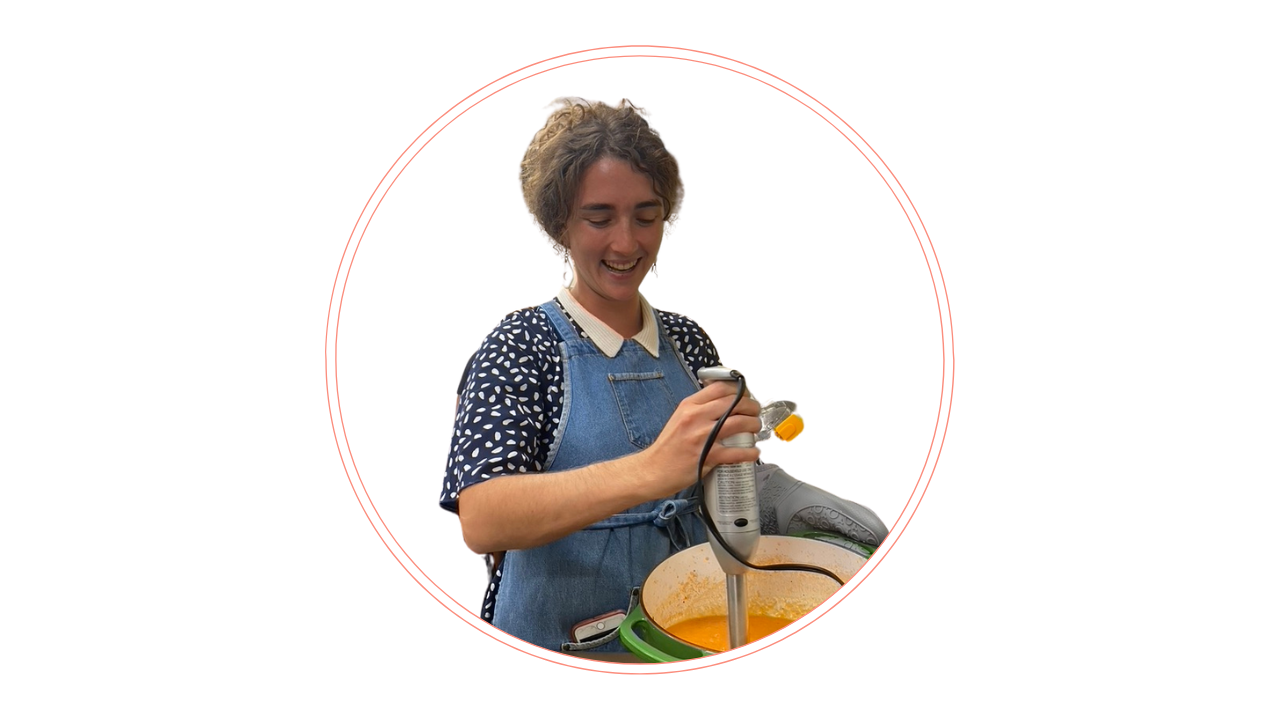Wise Heart Nutrition Blog:
All Things Anti-Diet, Intuitive Eating, and ADHD
Why ADHDers Eat When They’re Not Hungry (and Why It’s Not a Problem to Fix)

Have you ever caught yourself standing in front of the fridge, nibbling on snacks even though you don’t feel physically hungry? If you have ADHD, this might sound very familiar.
The truth is, eating when you’re “not hungry” isn’t about lack of willpower or being “out of control” with food, despite what diet culture would like you to believe. In reality, your brain and body are trying to meet very real needs. Sometimes that need is actual hunger, but it can also be about other things that our body and brain are needing.
When we zoom out, we can see that ADHDers often experience a few different “flavors” of eating. These patterns can overlap, shift, and show up differently depending on the day, and none of them are wrong. In fact, they’re forms of self-care.
Let’s break down the three most common ones:
✨ Dopamine Eating
ADHD brains have lower baseline levels of dopamine (and fewer transporters to help that dopamine activate the reward center of the brain), the neurotransmitter...
5 Strategies for Eating Intuitively While Sticking to a Budget

Are you trying to eat intuitively, but feel like you are spending WAY to much $$$ on groceries?
I mean, who isn’t right now? Produce prices are bananas 🍌, eggs are no yolk pricey 🍳, and somehow, that grocery bill keeps creeping up week after week 🛒.
With food costs rising, it’s impossible not to consider your budget when making choices at the store.
Do you splurge on the creamy, decadent organic milk that makes your morning latte just right—even if it’s $8 a carton? Or do you stick to the budget and risk feeling unsatisfied with a swap that just doesn’t hit the same?
Balancing intuitive eating with financial realities can feel tricky—but it’s absolutely possible. Let’s talk about how.
How Budgeting Has Shifted My Intuitive Eating Approach
On a personal note, my relationship with grocery shopping has changed a lot—especially after navigating the challenges of grad school on a tight budget.
For years, my shopping trips were ruled by price tags. I bought whatever was che...
In the Kitchen with ADHD

By Marcy Landes, MSN
COOKING WITH ADHD MEANS…
Grocery stores are overstimulating, with way too many options—seriously, why didn’t I make a list beforehand??
You keep telling yourself, “I’ll go tomorrow,” but tomorrow turns into three more days of scavenging for crumbs.
By the time you finally make it to the kitchen, you’re ravenous because your hunger cues decided to take the afternoon off.
You don’t have the spoons to follow a recipe (and even if you do, you somehow miss a crucial step anyway).
And then—those veggies you were actually excited to roast? Yep, burnt to a crisp because you forgot the timer.
You’re stuck in a hyperfixation food loop—loving it one week, hating it the next, and suddenly… no idea what to eat.
You don’t want to cook because the dishes aren’t clean, and the thought of washing them? A major chore (without the allowance money).
While cooking, it’s chaos: cupboards and drawers wide open, bowls crashing, and somehow, you’re using seven utensils for one dis...
8 Ways ADHDers Mask with Food 🎭

It’s not Halloween, there’s no masquerade ball invite, and we didn’t catch a cold—so why are ADHDers masking? 🎭
*Ba dum tss!*
All jokes aside, masking—sometimes called “social camouflaging”—is when neurodivergent individuals hide or suppress their natural behaviors, traits, or tendencies to fit societal norms and expectations.
Across the neurodivergent community, some common examples of masking include:
- Suppressing stimming, like avoiding repetitive movements or motions.
- Mirroring social behaviors, such as copying facial expressions, gestures, or tone of voice.
- Forcing eye contact, even when it feels deeply uncomfortable.
- Hiding sensory discomfort (like noise, lighting, or certain textures).
- Rehearsing scripts for conversations to navigate social situations more easily.
But masking doesn’t just happen in social interactions.
What does masking look like when it comes to food and eating? How do social stigmas—and societal expectations—show up at the tabl...
The Truth About ADHD and Sugar: Are We Addicted?

The results are in…
*SUGAR IS NOT ADDICTIVE*
Good news, fellow ADHDers! We are NOT addicted to sugar because sugar is NOT an addictive substance. Thanks for tuning in—see you next time!
...
But seriously, sugar addiction is a hot topic (and we have a lot to say about it). Whether you’ve felt an uncontrollable pull toward sweets (maybe due to diet culture, undernourishment, using sugar as a coping tool, the list goes on) or heard friends, family, or partners share their own “sugar struggles,” I’m here to offer a fresh perspective on this tasty debate.
Let’s start with the basics… What the heck is sugar?
SUGAR / STARCHES / CARBOHYDRATES = GLUCOSE
In our bodies, all sugars—from fruits, grains, roots, legumes, veggies, sweets, and drinks—are eventually broken down into their simplest form: glucose. Glucose is a neat little ring-shaped molecule that gets absorbed from our bloodstream by our cells to create energy. In fact, about 45-65% of our energy comes from glucose alone. Wowee! T...
What is Joyful Movement? 🏋️

I remember a time where the word “joyful” and “movement” didn’t feel grammatically correct in the same sentence.
There was a period of my life when the buzzing voice of diet culture had its volume waaaay up. You know, the constant nagging of: “you need to exercise every single day to be healthy” and “you need to work-out hard”, or “if you want to eat XYZ you have to workout today” for the *insert unrealistic body rule/ideal/social construct*. Ew, cringey times.
And let’s be real, the way I interacted with movement those days left no, no, NO room for joy.
Shall I paint the picture we all know too well? The sweaty, crowded, stinky, brightly lit gym. The Disneyland length lines for a medieval guillotine-like machine that left me in a painful pretzel. The mirrors on mirrors on the wall, watching you, watching me watching you👀.
And let’s not forget the LOOOUUD diet culture brain chatter that equally said “you need to exercise for this, this, and this reason” while equally feeling ...
Digestion and Mental Health: The Science and Nourishment of the Gut-Brain Connection

Over the past 10 years there has been a volcano 🌋 of research on the connection between the digestive system (or “gut”) and our brain. While there is still so much more research and exploration that needs to be done, there are some interesting tidbits that have come to the surface regarding the Gut-Brain-Axis.
You may have heard about the gut/brain connection in the latest probiotic commercials, from social media ads, or on your containers of yogurt from the store. “Gut Health” has become a buzzword, “healing your gut” is now trendy (and no surprise, a biiiiiiig money maker in the wellness industry), and of course, is now common discourse in diet culture. And it can be dizzying, with all of the available information from a zillion different sources, to tease out the real information and throw away the flim-flam.
So, we’re gonna offer some help. Let’s get into the nitty-gritty, the microscopic, the inner-universe inside of us (Magic School Bus anyone!?), and gather some wisdom around...
🧠How does the ADHD INCUP Motivation Model apply to Eating with ADHD®?

Alright ADHDers, let's have another chat about the one, the only, MOTIVATION!
Elusive in nature and oh so empowering when the stars (and chemicals in our brain) align in motivated harmony✨
We know that tapping into motivation is hard for people with ADHD due to differences in executive function and brain chemistry, like challenges with delayed gratification, task perception, emotional regulation difficulties, susceptibility to environmental distractions, etc, etc, etc.
But guess what? We've got some secret sauce, a trusty tool to share with you, for igniting that motivation.
Drumroll please... let’s introduce the INCUP model!
WHAT IS THE INCUP MODEL?
I know it doesn’t sound especially sexy but bare with me on this one…
INCUP: interest, novelty, challenge, urgency, and passion
The INCUP model, created by William Dodson, a psychiatrist who has dedicated his career to learning about and supporting patients with ADHD, understood that the ADHD brain is far ...
How Do I Know if I’m Actually HUNGRY🍕, or Just Seeking DOPAMINE🧠?

✨This is the new-age old question.✨
Here are some of the questions we frequently get asked by clients and members of our Eating with ADHD® Neurished community:
“Shouldn’t I just KNOW when I’m hungry?”
“Why can’t I tell the difference between hunger and seeking dopamine?”
“Isn’t it ‘bad’ to use food for a dopamine hit, if I am not hungry?”
Does some of this brain chatter sound familiar to you? Want some answers? Read on!!
Bringing awareness to, interpreting, and responding to our internal cues (which include both hunger and a need for dopamine) takes time and practice to learn and feel comfortable with, especially for those of us living with ADHD.
ADHD Brains are Different
As neurodivergent humans, we tend to have…
-
🧠 Lower Interoceptive Awareness
- Difficulty recognizing and understanding the sensations going on inside of us that communicate what our bodies need in any given moment - this includes hunger, thirst, needing dopamine or stimulation,...
Navigating Food Waste with a Neurodivergent Brain

Let's delve into a notable, and all-too-familiar hurdle that arises when navigating food and eating with a neurodivergent brain (ADHD, Autism, OCD, or any other flavor of neurospicy). You probably know it: the cringe-worthy and dreaded experience of guilt, frustration, and self-judgment that often shows up in response to finding (or avoiding) that rotten broccoli, moldy bread, container of something unrecognizable, freezer-burned chicken, and SO. MUCH. MORE.
It's an experience often marked with spirals of negative self-talk, echoing "WHY does this keep happening!? WHY can't I get a handle on it!? What's WRONG with me!?" And despite earnest efforts, genuine intentions, and constant attempts at pushing those thoughts to the back of our minds (and refrigerators), the issue remains stubbornly present.
So, it's time to talk about the shame monster that haunts so many of us day after day after day: FOOD WASTE. 💀🥬
